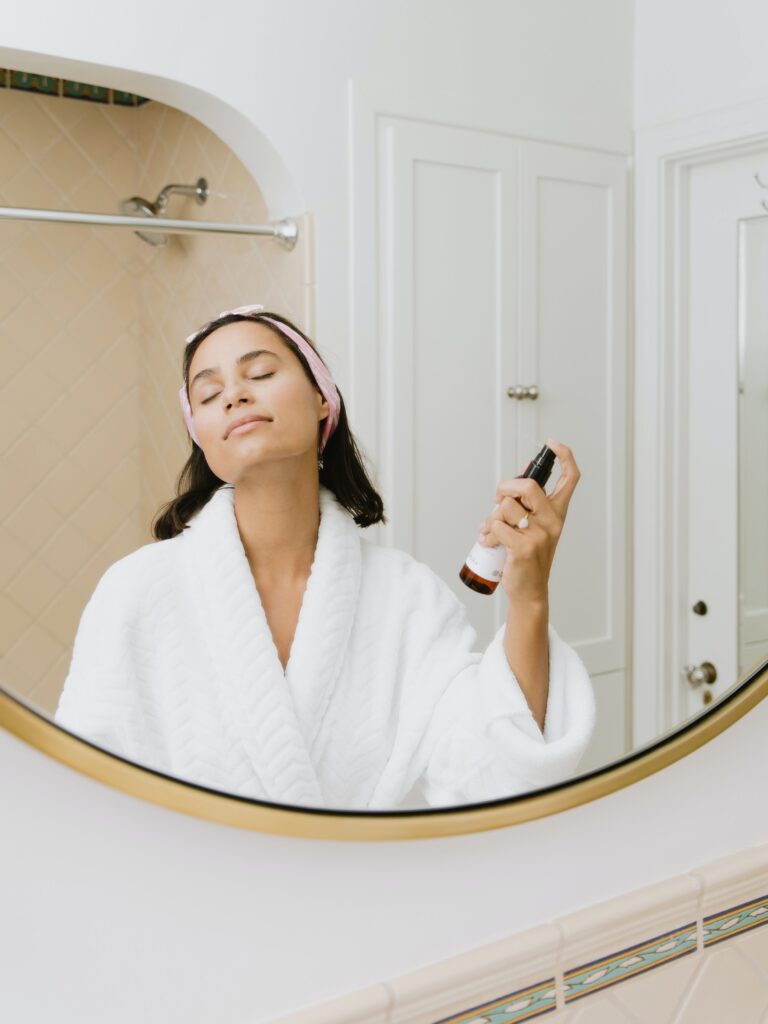If you’ve always wondered what keeps your whole body together, collagen is the answer. It makes up to one-third of the human body protein and is the major component of connective tissues, including skin, muscle, and bone.
However, when talking about collagen, most people refer to the benefits it has on human skin. When collagen levels are high, they provide your skin with proper structure, ensuring it remains firm and smooth, slowing down the aging process.
The problem is, though, that collagen production decreases with age. It’s the lack of collagen that results in common skin aging signs, including fine lines and wrinkles. Fortunately, there are many medically reviewed ways to boost its production.
If you’re interested in learning more, keep reading. In the article below, we’ll discuss the natural ways to promote your production of collagen.
Consider Taking Collagen Supplements
Natural collagen supplements have become extremely popular in the past few years. Besides promoting the production of collagen in the skin, they also come with many other health benefits, including relieving joint pain or promoting heart health.
The primary reason behind such supplements’ popularity, however, is their anti-aging properties. Collagen is often the core of any skincare routine, promoting skin elasticity and overall health.
Another benefit of collagen supplements is that they’re available in various forms. For instance, if you’re vegan, we recommend taking a look at primalharvest.com as they’re one of the most reliable natural supplement providers.
Eat Foods Rich in Vitamin C
It’s a well-known fact that vitamin C is beneficial for your skin health. But did you know that it also has collagen-boosting properties? All because it’s essential for the hyaluronic acid’s synthesis, which may help in increasing collagen levels.
In fact, hyaluronic acid and collagen have much more in common. They’re both responsible for skin cells’ health, and their levels decrease with age. In short, one can’t exist without another, which makes it even more important to take care of both.
Fortunately, all it takes to increase your hyaluronic acid levels is ensuring your diet is rich in vitamin C. As such, you should consume foods like citrus fruits, red peppers, strawberries, or broccoli. You can also consider taking vitamin C supplements.
Use Aloe Vera Gel
Aloe vera gel is well-known for its skin-soothing properties. People use it to relieve their skin after sunburn, ease rash, and heal minor wounds. But it’s much more to it than meets the eye.
As various studies prove, aloe helps promote collagen formation. When taken orally and applied topically, aloe can significantly decrease the aging signs by stimulating collagen in the body and improving skin quality.
Try Ginseng
The anti-aging properties of ginseng have been known for a long time. Contrary to many chemical pharmaceuticals, our skin absorbs ginseng naturally, without causing adverse reactions. Thanks to that, it helps skin keep its original shape.
But ginseng has many more benefits than that. For instance, it helps our body produce collagen and preserves skin against UVB rays damage from the sun.
Besides that, ginseng also has anti-inflammatory properties, and as a few studies prove, it can even stop skin cells from aging. You can find ginseng in tea or take it in the form of supplements.
Include Algae in Your Diet
Algae is a marine plant ingredient that has become quite a popular part of many beauty routines. Algae is known to protect skin from oxidation – the exposure to certain elements, like pollution – which can damage collagen cell growth.
Including algae in your diet will prevent oxidation from affecting your skin elasticity, ensuring it stays smooth and healthy. You can find algae in almost any drugstore in the form of oral capsules.
Increase Antioxidants Intake
Do you love green tea? If the answer is yes, then you’re in luck as it contains antioxidants. They’re substances that protect the body from free radicals – molecules that can severely damage collagen levels.
And while most antioxidants can’t increase collagen production, they can help your body do its job in maintaining healthy skin. Besides tea, a list of foods and drinks rich in antioxidants includes:
- Blueberries
- Yerba mate
- Coffee extract
- Cinnamon
- Basil and oregano
- Licorice extract
Protect Your Skin
One thing to know about your skin cells is that they’re in a constant cycle of being created and destroyed. However, some factors can make matters worse. For instance, sun exposure, pollution, or harsh weather can cause severe damage to your skin.
Once your cells get damaged, your body uses collagen to replace it, and therefore, decrease its level. The best way to make sure your skin is safe (and collagen production efficient) is to keep it clean and well-protected.
Wash and exfoliate your skin every day, use sunscreen on sunny days, and don’t expose yourself to UV rays for too long when sunbathing.
Quit Unhealthy Habits
If you’ve always experienced skin problems, bad habits such as alcohol consumption or smoking can make things even worse. For instance, cigarettes age your skin as they decrease the blood flow and oxygen, release free radicals, and damage collagen and elastin fibers.
Alcohol, on the other hand, decreases your body’s ability to produce collagen, as well as impairs your skin’s natural antioxidant defense system.
With that in mind, cutting on alcohol and cigarettes is a must when dealing with skin-related and collagen production issues.
Final Note
We all dream of smooth and tighten skin. Unfortunately, it’s impossible to keep it that way without giving your collagen production a little boost. As you can see, though, achieving that goal isn’t a very complicated task.
There are many natural ways to take care of your collagen levels, providing your skin with all the help it needs to remain healthy. By consuming foods and drinks rich in collagen, vitamin C, or antioxidants, as well as taking natural supplements, you’ll be able to increase collagen production.
Moreover, by protecting it from the harmful environment and quitting bad habits, you’ll make sure its level remains healthy. You can also seek medical advice if you’re unsure how to deal with your issues – a dermatologist should provide you with all the additional information you need.
Photo by Kalos Skincare on Unsplash




